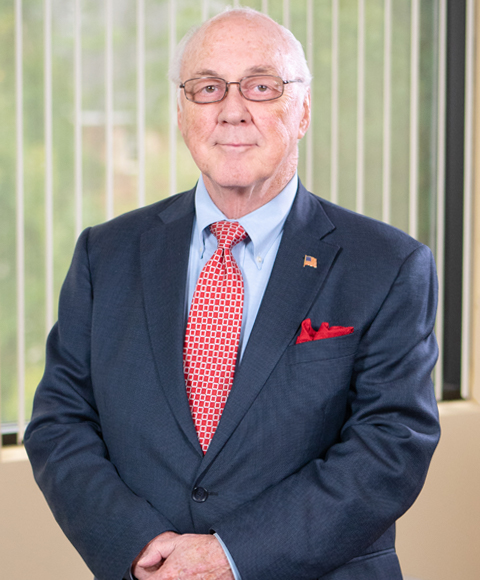Calling it “a deeply disturbing day,” Gov. Kathy Hochul said she wants to convene a special session with New York lawmakers to address the U.S. Supreme Court’s ruling on Thursday that struck down a state law that placed restrictions on carrying concealed firearms in public for self-defense.
In anticipation of the decision—a 6-3 ruling in New York State Rifle & Pistol Association v. Bruen—Hochul said she has been working with a team of legal experts from across the country to make sure New York is prepared for ramifications of the decision.
The ruling will only fuel the ongoing gun violence crisis, said Hochul, whose hometown of Buffalo suffered a racially motivated mass shooting at a grocery store on May 14, resulting in 10 deaths.
A week after the Buffalo massacre, 19 children and two teachers were killed in a mass shooting at an elementary school in Uvalde, Texas. On June 1, four people were fatally shot at a medical building in Oklahoma.
New York law has required individuals to obtain a license to be able to carry a handgun outside their home since 1913. Applicants for a license must also show a need.
In March 2019, the NYSRPA and two individuals who were denied a license sued New York in the U.S. District Court for the Northern District of New York, claiming the state’s concealed carry law infringed their Second Amendment rights. The lawsuit was dismissed in March 2018, a decision affirmed by the U.S. Court of Appeals for the Second Circuit.
The majority opinion written by Justice Clarence Thomas held that the requirement for applicants to demonstrate a special need for self-defense is unconstitutional. The ruling reversed a lower court decision that upheld the state’s 108-year-old law that restricts who can obtain a license to carry a concealed handgun in public.
“New York’s proper-cause requirement violates the Fourteenth Amendment in that it prevents law-abiding citizens with ordinary self-defense needs from exercising their right to keep and bear arms,” the opinion read.
Justice Stephen Breyer’s dissent spoke to the increase in firearms violence across the country, and it cautioned that states that are trying to enact stricter gun laws, such as New York, would be “severely burdened” by the decision.
New York is one of six states potentially impacted by the ruling.
Elizabeth Fine, counsel to Hochul, said there’s no immediate change to New York law since the case was remanded to a lower court.
At a news conference where Hochul signed Alyssa’s Law to require school districts to consider installing silent alarms that would alert police during an emergency, the governor said states and governors have a moral responsibility to protect their residents from gun violence if the federal government doesn’t enact sweeping laws to do so. The law is named after a 14-year-old girl who was killed in a 2018 school shooting in Parkland, Florida.
“This decision isn’t just reckless,” Hochul said of the SCOTUS ruling. “It’s reprehensible. It’s not what New Yorkers want. And we should have the right of determination of what we want to do in terms of our gun laws in our state.”
As part of a package to strengthen New York gun laws, Hochul earlier this month sign legislation raising the age at which a person can legally purchase a semiautomatic rifle, such as an AR-15, from 18 to 21 years old. The assailants in the Buffalo and Texas massacres were both 18 and armed with AR-15-style rifles that were legally purchased.
In a statement, Attorney General Letitia James vowed to protect New Yorkers in wake of the ruling.
“The Supreme Court made its decision,” said James, “but the fight to protect American families from gun violence will march on. In the days to come, my office will be taking action to address the potential harm that this ruling may cause, and we will continue to defend the constitutionality of our state’s laws, as we’ve always done. We will work with the governor and Legislature to amend our licensing statute that will continue to protect New Yorkers.”
Sherry Levin Wallach, president of the New York State Bar Association, decried the SCOTUS ruling.
“As the nation reels in the wake of the Texas and Buffalo mass shootings and urban centers across the country struggle to contain an epidemic of gun violence, the U.S. Supreme Court has delivered an ill-conceived decision that will set us back decades and further threaten public safety,” Levin Wallach said.
New York’s commonsense and century-old law on concealed carry permits struck an appropriate balance between preserving Second Amendment rights and preventing weapons from being procured by those who should not have them, Levin Wallach added, while noting that violent crime swelled an average of 13% to 15% in states that weakened their concealed carry permit standards.
However, the Legal Aid Society said the decision could be “an affirmative step toward ending arbitrary licensing standards that have inhibited lawful Black and Brown gun ownership in New York.”
While the ruling takes discretion away from county judges who want an explanation as to why an applicant needs a pistol permit, overall, the decision will make the law fairer because self-defense and protection are legitimate reasons for seeking a permit, said Tully Rinckey partner Donald Chesworth.
A former superintendent of the New York State Police, Chesworth said an issue that stands out in the Buffalo case is that juvenile records are not generally available to courts when they’re making decisions about issuing pistol permits.
“I think the most recent state legislation is trying to remedy that, and that’s probably a good thing,” he said.
The draconian picture painted by the governor and others with respect to the decision fueling the gun crisis was “a political view,” Chesworth said.
“Clearly, the people who are committing the violent acts with firearms are not those who’ve been applying for pistol permits,” he said. “And most of the people who end up with firearms and commit a crime have either stolen them or have brought them in from another jurisdiction. I think that, to penalize an average citizen who wants to get a pistol, when that will have absolutely no effect on diminishing the crime rate is not appropriate. So I think the decision of the Supreme Court is appropriate and I think it’s going to be beneficial to the average citizen in New York State.”




